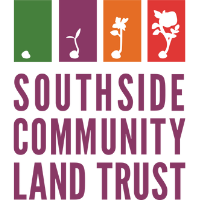We reclaim land for farmers to grow food

Above, a freshly cleared and tilled field at Good Earth Farm. As with many old New England farms, the forest had encroached onto the fields over time. Our new forest management plan uses conservation best practices, which balance our goal to expand crop production with preserving and enhancing the health of forestland on the property to ensure long-term resiliency.
According to the USDA, farmland in Rhode Island is more expensive than any other state in the country. This makes it extremely difficult for beginning farmers to buy land here.
SCLT works with partners around the state to connect land seekers with landowners who want to lease or sell their farmland and keep it from being developed. Project partners include: Young Farmer Network, The Nature Conservancy of Rhode Island, RI Department of Environmental Management, RI Land Trust Council, Northern RI Conservation District, and Land for Good.
We match parcels with first-generation and immigrant farmers so they can grow healthy (chemical-free) produce for wholesale and retail outlets, including our own Produce Aggregation Program, as well as farmers markets, restaurants, and CSAs. Parcels may be managed by one or more farmers or comprise several farm enterprises. By offering affordable leases on farmland, SCLT enables a growing number of people t0 make a living while meeting the growing demand for locally grown, fresh produce.
City Farm
The oldest urban farm in Rhode Island, City Farm, is located at 168 West Clifford Street in South Providence. City Farm staff grow and sell chemical-free produce all season long, creating a revenue stream for SCLT and providing opportunities for hundreds of youth, volunteers, and beginning farmers to learn about planting, tending, and harvesting. City Farm produce is sold at two weekly farmers markets and donated to the RI Community Food Bank and the Project Weber/Renew food pantry.
City Farm is changing our food system in four ways, by:
- providing healthy produce to thousands of people every year
- offering workshops on sustainable growing practices that produce high-yield crops in small, urban spaces
- promoting biodiversity, sustainability and community at our annual Rare & Unusual Plant Sale
- operating a composting program that’s kept more than 60,000 lbs. of food and other organic waste out of the landfill since 2013 – in fact, City Farm’s is the second-largest composting facility in the state! (read this great article to learn more)
Galego Community Farm
Galego Community Farm is a large site we manage on behalf of the Pawtucket Housing Authority. It hosts two market growers during the growing seasons, and now has 72 community garden plots. If you’re interested in gardening in one of them, please fill out the waitlist form or contact Andrew Cook at (401) 273-9419, ext.107 or andrew@southsideclt.org. We also offer summer learning and youth employment programs at this site to encourage young people in Pawtucket and Central Falls to learn about growing and eating healthy food, and how to advocate so that all members of their community can access fresh, nutritious and affordable food.
Good Earth Farm
Good Earth Farm (GEF) is our latest land acquisition. This 20-acre property is located a short distance from Urban Edge Farm in Western Cranston. Like UEF, it hosts a variety of small-scale farmers who mostly began growing food on SCLT’s urban community gardens before moving onto larger parcels. Six farm operations, four operated by Hmong farmers and two by East African farmers, are now based at GEF. The farm has two heated greenhouses, automated irrigation, two wells, dry storage, retail space and other shared infrastructure and resources. Farmers sell their produce to farmers markets and wholesale outlets through SCLT’s Farm-to-Market Center. They host a plant and garden resource market on weekends in the late spring.
Urban Edge Farm
Urban Edge Farm comprises 50 acres in Western Cranston, RI, roughly 30 of which are now cultivated. SCLT manages the farm under a long-term lease with the RI Department of Environmental Management. Seventeen farms operate at UEF, employing about 40 people, most of whom are immigrants and refugees from Southeast Asia, Africa and the Dominican Republic. Farmers share equipment, farm infrastructure and other agricultural resources at UEF, and receive technical assistance from SCLT farmer support staff. You can read more about it here.
In addition to growing on the farms above, many urban farmers lease plots in our community gardens, waiting for farmland to open up so they can expand their businesses. SCLT’s Land Fund enables us to renovate abandoned urban parcels and clear undeveloped acreage at UEF for these farmers. Please donate, if you can, to support this Fund.
For more information about the RI Farmland Access Program, please e-mail Land Access Manager Matt Tracy at mtracy@southsideclt.org

